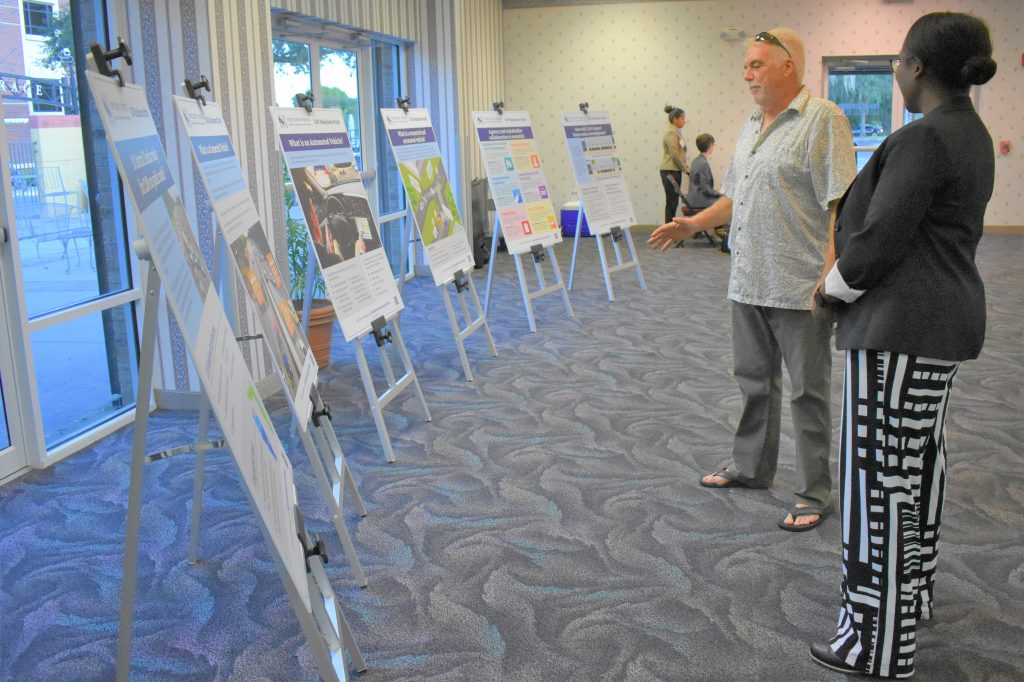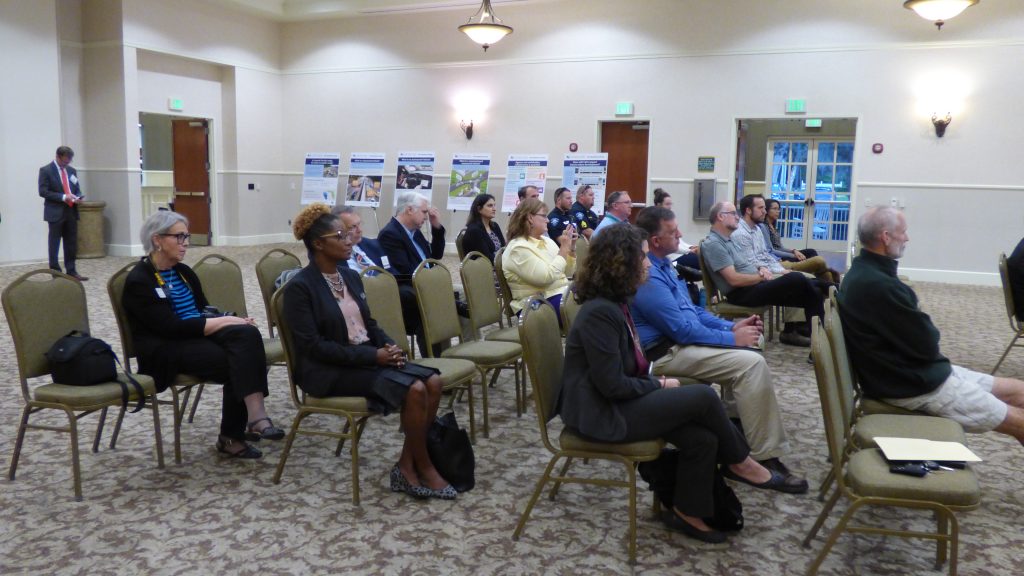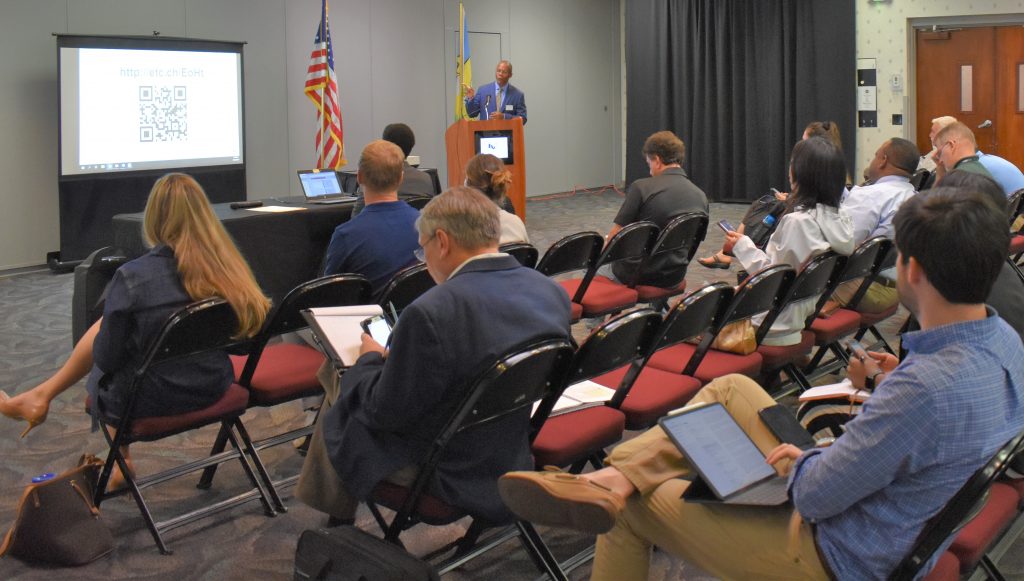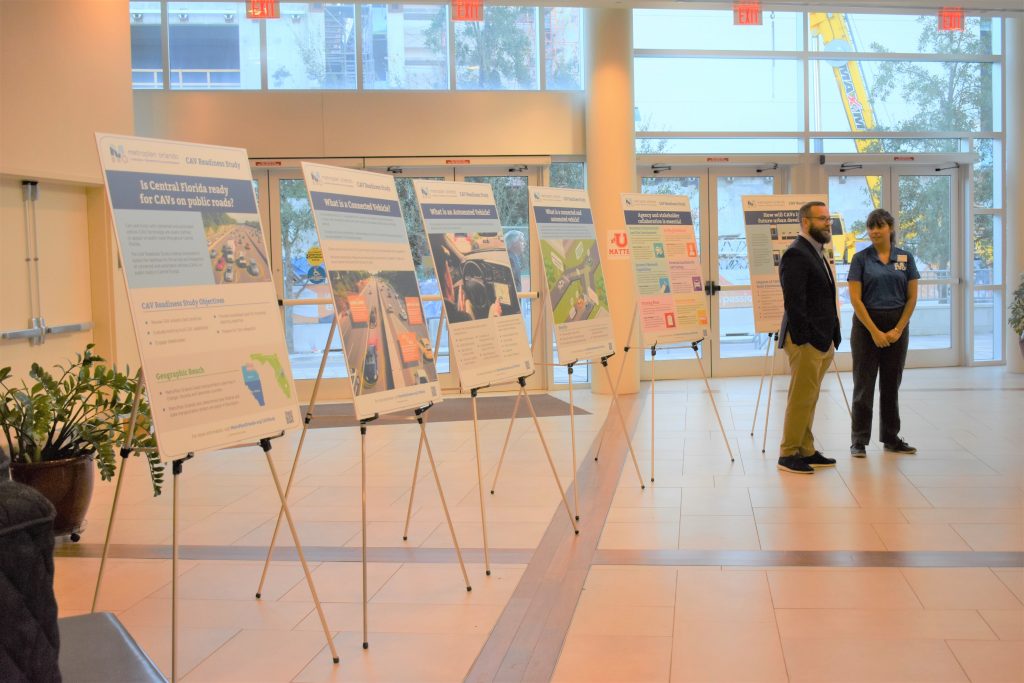Central Florida needs to get ready for connected and automated vehicles (CAVs), which combine a host of capabilities into a fully automated driving system. Big and small changes will affect how we all get around when these vehicles become commonplace on our region’s public roads.
how are we studying connected and autoMATED vehicles?
Since early 2019, MetroPlan Orlando’s CAV Readiness Study team has evaluated what this technology may mean for the region’s roads and transit agencies. We looked at what other regions do well and how ready we are to respond. We looked to the public for ideas and concerns, and we had conversations with experts and residents throughout the area. All this work came together in our final report and recommendations, approved by the MetroPlan Orlando Board in June of 2020.

CAV Readiness FINAL REPORT & recommendations
The recommendations in the final report encourage coordination on a set of actions, recognizing they won’t all be accomplished at the same pace across every agency or jurisdiction. Implementing these recommendations will depend on funding, how they fit in with other equipment and infrastructure upgrades, and how they can be modified to make the most effective overall investment.
MetroPlan Orlando will continue conversations about policies and procedures and help guide our partner agencies as they pursue their CAV goals. You can review the final report, below, which summarizes four major study tasks and presents a final set of recommendations.
MetroPlan CAV Readiness – Final Report
HAVE A QUESTION OR COMMENT?
MetroPlan Orlando knows that community involvement is critical in planning everyone’s future transportation needs in Central Florida. If you have a question or a comment about the integration of CAVs on public roads in the region, please contact Eric Hill: Eric.Hill@MetroPlanOrlando.gov.

A DETAILED LOOK AT THE CAV READINESS STUDY
The study consisted of four main tasks:
1. A Nationwide CAV Industry Best Practices Review. This provides a comprehensive analysis of the current CAV industry in the MetroPlan Orlando planning area, across Florida, and nationwide.
The purpose of the review was to gather information about CAV pilot projects and planning efforts with findings that can be applied in Central Florida. Best practice topics explored in depth include:
• CAV definitions, terminology and standards
• Required supporting infrastructure
• Analysis of data elements
• Current and past CAV pilots and planning efforts
• Assessment of national research efforts
You can review the CAV Industry Best Practices Review Technical Memorandum below.
MetroPlan CAV Readiness Study – Task 1 Memo Final
2. An Evaluation of Local Existing Capabilities. This effort reviews existing Connected Vehicle (CV) and Automated Vehicle (AV) infrastructure and practices in Orange, Seminole and Osceola counties. The memorandum summarizes interviews with transportation engineers, managers and planners at 22 partner agencies about road infrastructure, staffing, system and network capabilities, potential CAV testing locations, training plans, and possible equity challenges in CAV testing and implementation. It also compiles a list of current CAV pilot projects in the region.
You can read the full evaluation in the technical memorandum below.
MetroPlan CAV Readiness Study – Task 2 Memo Final
3. A Series of Public Involvement Workshops. These workshops were hosted in Fall 2019, one each in Orange, Osceola and Seminole counties. At the workshops, the study team communicated how CAVs will impact local and regional transportation planning; conveyed information on applicable legislation, policies and regulation; and identified opportunities for public and private sector relationships.
Attendees at all three workshops showed an understanding and favorable opinion of CAV concepts. However, some expressed concerns about safety, privacy or data security. The workshop participants highlighted vehicle technology development, workforce training, and data storage as likely the biggest challenges when CAVs emerge on public roads. Attendees agreed future planning opportunities include prioritizing funding to inform the public and establishing a cross-agency group to share knowledge and make recommendations about CAV testing and deployments.
You can see display boards and presentation slides from the meetings below.
CAV Readiness Workshop Informational Boards
CAV Readiness Workshop Powerpoint Slides

4. Development of Recommendations for CAV Preparedness. MetroPlan Orlando wrapped up its project with a comprehensive set of recommendations and steps to help advance the state-of-the-practice in the region.
The final report outlines five categories of recommendations for organizations in the region to consider. While agencies are at differing levels of readiness for CAV – and may have different priorities – putting the full menu out will allow them to choose what suits their capacity and status. Categories and sample recommendations include:
1) Planning & Policy – Ensuring leadership is on-board, establishing clear roles and responsibilities, incorporating concepts into long-range planning, considering implications for site development, and ensuring equity is factored into each project and effort.
2) Infrastructure Guidelines – Incorporating updated signing, pavement markings, and traffic signal hardware into future operational projects, and planning for the additional maintenance responsibilities that could result.
3) Data Collection & Management – Planning for systems capable of managing large amounts of new data, as well as the decision-making authority on data policies and data stewardship – while emphasizing the responsibility to protect this information.
4) Pilot Projects – Identifying and pursuing opportunities to test CAV technologies through pilot projects and deployments that bring real-world mobility and safety benefits to the region, allowing them to proceed under safe and reasonable conditions.
5) Staffing & Training – Investing in finding, attracting, and retaining employees with the right skills to operate, maintain, manage, and plan the next generation of transportation technology.

study background
MetroPlan Orlando commissioned the CAV Readiness Study to assess the readiness for arrival and integration of connected and autonomous vehicles (CAVs) on public roads in Central Florida. While the technology advances appear inevitable, there had not been a comprehensive look at how the region might need to adapt and prepare.
Analyzing the innovations and what they could achieve brought to light a variety of opportunities and potential issues that had not previously been considered.
A connected vehicle (CV) uses wireless communications, such as dedicated short range communications (DSRC), cellular, WiFi and satellite to exchange information with nearby vehicles, the roadside infrastructure, and mobile handheld devices. An automated vehicle (AV) uses sensors such as cameras, radar, lidar, and infrared. These provide information to one or more driving systems such as steering, braking, adaptive speed control, and parking assistance for handling dynamic driving tasks without direct input by a human driver. CAVs combine CV and AV capabilities to realize the potential safety benefits of fully automated driving systems.
In the not-too-distant future, CAVs will be in regular use on shared public roads throughout Central Florida. Before this happens, our study concluded, there will be many challenges to overcome to prepare the region for their introduction and adoption. Bringing CAVs onto our roads also will require consistent coordination throughout the region and across the state.
The study findings and recommendations provide a knowledge base for MetroPlan Orlando to increase its planning expertise and prepare Central Florida for the integration of CAV technologies into the region’s transportation system.
